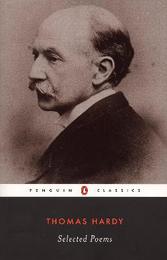
|
Selected Poems of Thomas Hardy
Paperback / softback
Main Details
| Title |
Selected Poems of Thomas Hardy
|
| Authors and Contributors |
By (author) Thomas Hardy
|
|
Edited by Robert Mezey
|
| Physical Properties |
| Format:Paperback / softback | | Pages:320 | | Dimensions(mm): Height 196,Width 130 |
|
| Category/Genre | Poetry by individual poets
Literary studies - general |
|---|
| ISBN/Barcode |
9780140436990
|
| Classifications | Dewey:821.8 |
|---|
| Audience | |
|---|
|
Publishing Details |
| Publisher |
Penguin Putnam Inc
|
| Imprint |
Penguin USA
|
| Publication Date |
1 December 1998 |
| Publication Country |
United States
|
Description
Thomas Hardy abandoned the novel form at the turn of the century, probably after public reaction toJude the Obscure, but continued to write verse displaying a wide variety of metrical styles and stanza forms and a broad scope of tone and attitude. This definitive volume contains selections from his numerous collections published between 1898 and 1928. For more than seventy years, Penguin has been the leading publisher of classic literature in the English-speaking world. With more than 1,700titles, Penguin Classics represents a global bookshelf of the best works throughout history and across genres and disciplines. Readers trust theseries to provide authoritative texts enhanced by introductions and notes by distinguished scholars and contemporary authors, as well as up-to-datetranslations by award-winning translators.
Author Biography
Thomas Hardy(1840-1928) immortalized the site of his birth-Egdon Heath, in Dorset, near Dorchester-in his writing. Delicate as a child, he was taught at home by his mother before he attended grammar school. At sixteen, Hardy was apprenticed to an architect, and for many years, architecture was his profession; in his spare time, he pursued his first and last literary love, poetry. Finally convinced that he could earn his living as an author, he retired from architecture, married, and devoted himself to writing. An extremely productive novelist, Hardy published an important book every year or two. In 1896, disturbed by the public outcry over the unconventional subjects of his two greatest novels-Tess of the D'UrbervillesandJude the Obscure-he announced that he was giving up fiction and afterward produced only poetry. In later years, he received many honors. He was buried in Poet's Corner, in Westminster Abbey. It was as a poet that he wished to be remembered, but today critics regard his novels as his most memorable contribution to English literature for their psychological insight, decisive delineation of character, and profound presentation of tragedy.
|